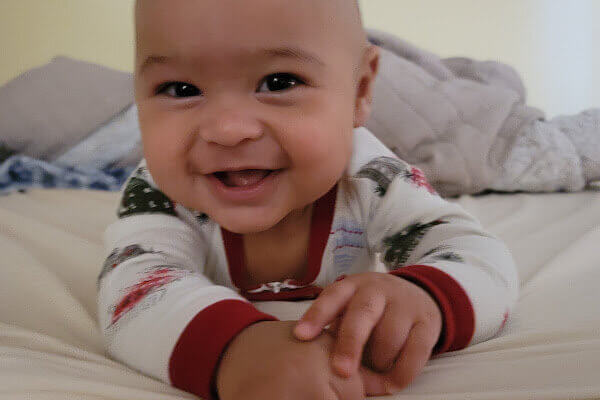The key to raising a brainy kid is…swimming lessons? At least, that’s what recent research from Griffith Institute for Educational Research in Australia says.
Researchers surveyed parents of over 7,000 kids ages 5 and under, and found that children who participate in swimming lessons at an early age reach developmental milestones sooner than their non-swimming counterparts. And the lessons didn’t just help preschoolers develop physical skills faster: Swimmers also had higher visual-motor skills like paper-cutting and line-drawing, higher mathematical skills, and higher oral expression skills.
Is there something in the water? Maybe—but there could be more to it. Part of the value in swimming lessons may lay in the fact that kids get exposed to new experiences that help build their skills and that they’re getting high-quality, one-on-one interaction with caring adults, says Faith Polk, Ph.D., Assistant Professor of Early Childhood Education at Brandman University-Irvine in California. What’s more, “In swim lessons, a lot of the words kids are hearing aren’t part of everyday language, which gives them a chance to boost their vocabulary development,” Polk says. (When’s the last time you said backstroke in everyday conversation?)
The bottom line: Maybe signing your tot up for swim lessons with a dedicated instructor could put her on the fast-track to Harvard—but there’s plenty of things to boost her brainpower that you can do right at home, too. Three ideas:
Spend (quality) time together Actively engaging with your child through one-on-one time helps build her confidence and self-regulation skills. That doesn’t mean you can’t ever snuggle on the couch and watch TV together, but more often than not, strive for activities that are more interactive and thought-provoking, like reading a story, baking cookies, or flying a kite.
Talk nonstop You know that mom who never stops talking to her baby—the one who names every fruit and veggie at the grocery store, sings songs, and repeats nursery rhymes? Be more like her (and forget what other people think!). “Having baby conversations with your child is critical,” Polk says.
Remember your role The number-one way little kids learn is through relationships, and the first and most important relationship your child has is with you. “Parents are a child’s first teacher,” says Polk.
New research says swimming lessons can help little kids reach developmental milestones faster—but that’s not the only thing that can help!



